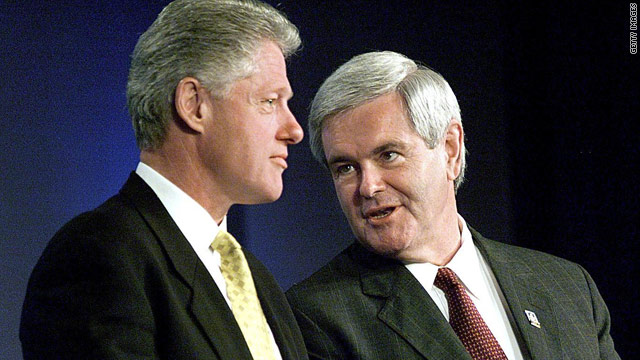
President Obama signs the Budget Control Act of 2011 in the Oval Office of the White House. (Pete Souza/White House via Bloomberg / August 1, 2011)
So, we finally have a deal on the U.S. DEBT CEILING and it was passed by the House of Representatives last night and is probably destined to become law. But, was all the fighting over how to cut spending really worth it? MAYBE – only if this is the first step on a long road back to fiscal sustainability. And the special commission is the next step. I intend to closely monitor its recommendations and Congress’ reaction so as to determine whether we continue to move down the road.
The decisions yet to be made on spending cuts and new/higher taxes are difficult. Some decisions will have a negative impact on the U.S. economy. I continue to analyze the details of the Bill in order to determine the extent of this negative impact. I intend to report in the next two Weekly Commentary on the results.
Author Archives: The Weekly Commentary
Motivational Quote of the Week

“Weakness of attitude becomes weakness of character.”
— Albert Einstein
“Your Financial Choices” on WDIY 88.1 FM

The show is hosted by Valley National’s Laurie Siebert CPA, CFP®. This week, Laurie and her guest, Kim Wisser, Regional Director for Education and Community Relations for Money Management International will discuss:
“Money Management and debt management – tips that can help.”
Laurie will take your calls on this subject and other financial planning topics at 610-758-8810. WDIY is broadcast on FM 88.1 for reception in most of the Lehigh Valley; and, it is broadcast on FM 93.9 in the Easton/Phillipsburg area; and, it is broadcast on FM 93.7 in the Fogelsville/Macungie area – or listen to it online from anywhere on the internet. For more information, including how to listen to the show online, check the show’s website www.yourfinancialchoices.com and visit www.wdiy.org.
Personal Notes

Several months ago I let you know that I intended to play 60 holes of golf in one day – my 60th birthday. Well, Friday August 5th is the day (although August 7th is actually my birthday). My club is comprised of 60 holes (three 18-hole courses and a 6-hole practice course). I intend to start play at 6:45AM Friday and play somewhat continuously for about 12 hours or so. I think I can make it around because I will use a golf cart and I will not use any practice swings. I may be stiff and sore on the weekend – I will let you know how it works out.
The Economy
Last week, negative developments far outpaced those considered to be positive. As a result, stocks declined in value.
Here is a succinct summation of last week’s events:
Positives:
1) Thru all the political noise, yields with maturities ranging from 2′s to 30′s are all lower
2) June Pending Home Sales unexpectedly rise 2.4%
3) Initial Jobless Claims fall a touch below 400k for 1st time in 16 weeks
4) Conference Board consumer confidence up a touch but period ended 2 weeks ago before political noise got really loud
5) India steps up fight against inflation with 50 bps rate hike
Negatives:
1) DC politicians get us into this mess and have little courage to get us out
2) Overnight LIBOR, repo and t-bill yields all spike
3) Q2 GDP disappoints with only 1.3% growth off a lower than expected base from Q1, revised to just .4% gain
4) Chicago PMI falls a touch, follows weak NY, Philly, Dallas and Richmond mfr’g surveys
5) Final UoM confirms preliminary report that has confidence at lowest since March ’09
6) MBA said purchase apps fall to lowest since Feb
7) S&P/Case-Shiller home price index remains near multi yr low
8) Durable goods orders disappoint-non defense cap goods ex aircraft falling .4%
9) India hikes rates more than expected, are they killing growth?
The Markets This Week

America may have no other choice than to run on Dunkin’ if Washington fails to avert a looming fiscal crisis by the Aug. 2 deadline to lift the debt ceiling and agree on spending cuts.
Although House Speaker John Boehner pushed a bill through the lower house late Friday to raise the debt ceiling, it seemed highly unlikely to get Senate approval, as it called for, among other contentious items, a Constitutional balanced-budget amendment.
The federal government hit the $14.3 trillion debt cap in May, and Treasury has been rolling over its debt to squeak by. The ever-present threat is that at some point the debt won’t be as attractive to as many buyers—especially if there were to be a credit downgrade—and interest rates will have to rise as an enticement, putting the U.S. in an even deeper hole.
U.S. stocks posted their worst performance in a year, dragged down by the threat that the nation’s triple-A credit rating could be cut.
Friday marked the sixth straight day of losses for the Dow Jones Industrial Average, which fell 537.92 points, or 4.24%, for the week, to 12,143.24, the largest weekly drop in percentage terms since July 2, 2010. The Nasdaq shed 102.5 points, or 3.58%, to end the week at 2756.38. Gold surged to an all-time high of $1,632.30 a troy ounce before falling back to $1626.40, as investors looked for cover.
Dashing spirits further, data released Friday showed that the U.S. economy grew at an anemic 1.3% rate in the second quarter, up from 0.4% in the first, but below the 1.8% that had been expected by economists polled by Dow Jones Newswires. Consumer spending, a key driver of economic growth, rose by a slight 0.1%, mainly because of higher prices for gasoline and food.
Amid growing anxiety in the markets about a possible U.S. default on its debt, investors managed to muster lots of enthusiasm for the shares of coffee-seller and doughnut maker Dunkin’ Brands Group (ticker: DNKN), lifting the stock to 27 from its initial public offering price of 19 on Wednesday, a gain of more than 50%. The success of Dunkin’ was emulated by Teavana (TEA), a specialty tea retailer with a strong online presence; its stock soared more than 60% from its 17-a-share offering price in the first day of trading Thursday. Both stocks came out of the box priced above their expected ranges. There was also strong interest in gourmet-food retailer Chef’s Warehouse (CHEF), which rose about 17%, from an initial 15 in its debut. All are tied to discretionary spending and commodity costs, but investors are betting on strong growth from store expansion.
Retail IPOs are up on average about 60% from their offering price, versus 11% for all IPOs this year, according to Renaissance Capital. Last week was the busiest for IPOs since November 2007—but they weren’t enough to prop up the market (Source: Barrons Online).
The Numbers:
Last week, US Stocks and Foreign Stocks decreased. Bonds increased. During the last 12 months, U.S. STOCKS outperformed BONDS.
Returns through 7-29-2011 | 1-week | Y-T-D | 1-Year | 3-Years | 5-Years | 10-Years |
Bonds- BarCap Aggregate Index | .6 | 4.4 | 4.4 | 7.1 | 6.6 | 5.7 |
US Stocks-Standard & Poor’s 500 | -4.2 | 3.8 | 12.6 | -2.4 | -2.9 | .7 |
Foreign Stocks- MS EAFE Developed Countries | -2.2 | 1.3 | 13.9 | -4.1 | -1.8 | 3.1 |
Source: Morningstar Workstation. Past performance is no guarantee of future results. Indices are unmanaged and cannot be invested into directly. Three, five and ten year returns are annualized excluding dividends.
“Like” and “Follow” Valley National Financial Advisors!
The Debt Limit – What Did Bill Clinton and Newt Gingrich Do in 1995?

They argued. And, debated. And, chastised. And, pleaded with the American voters…… when faced with similar circumstances in November, 1995. Back then, Newt and like minded Republicans refused to raise the debt limit. Their motive was to rein in spending as part of the “Contract With America” – the 1994 mid-term election slogan. The political process failed to bring both sides together. DOES THIS SOUND FAMILIAR?
The November, 1995 debt limit deadline came and went without Congressional action to raise it. In fact, the debt limit was not raised until March, 1996 – over 4 months after the original debt ceiling crisis deadline. The U.S. Treasury jiggled the books to avoid a default by moving money between different government funds. What happened to the stock market during this 4 month period? IT WENT UP! And, by a whopping 11.7%.
And, Bill Clinton was re-elected in 1996.
I think it is important to repeat last week’s view: lots of uncertainties exist with both the debt limit and potential downgrade of the U.S. Government debt. But, there is plenty to be optimistic about especially with improved corporate profits plus the FED’s stance on keeping interest rates low. My current view is the positives will ultimately outweigh the uncertainties. For this reason, I recommend that: (1) you maintain your long term asset allocation, and (2) if you have idle cash, invest it in this period of uncertainty at lower prices.
Motivational Quote of the Week

“Don’t let your victories go to your head, or your failures go to your heart.”

